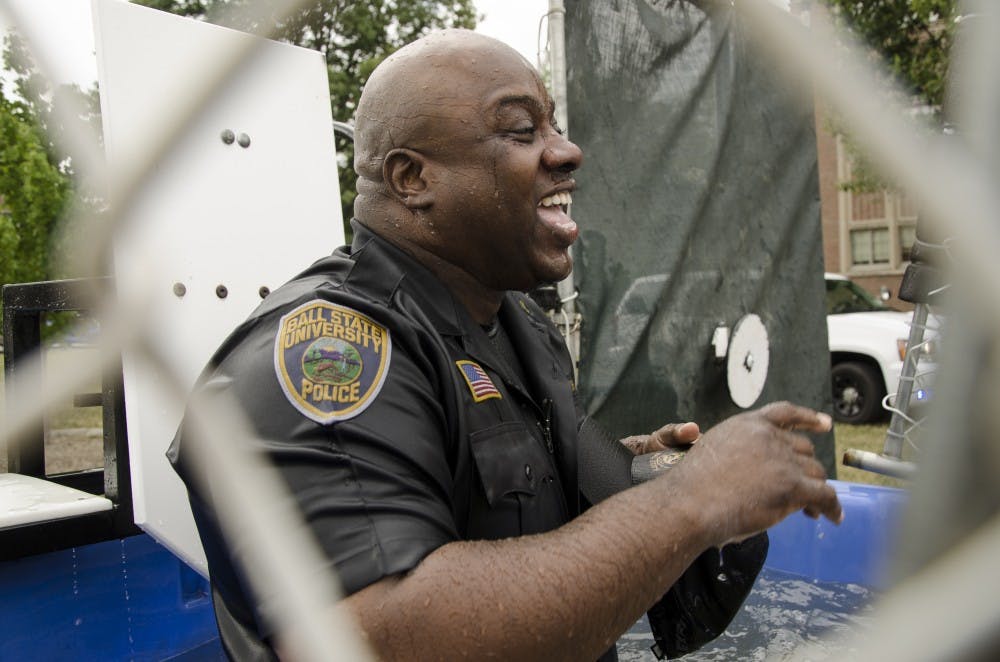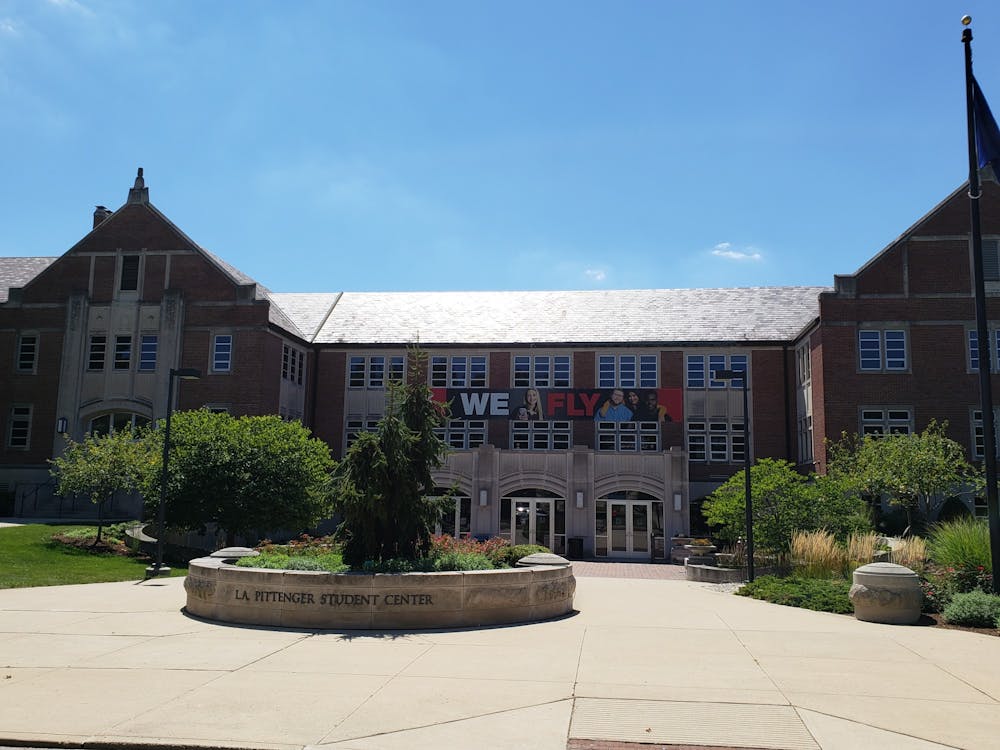Three years ago, when biology major Devante Gaines was a freshman, University Police Department Sergeant Terrell Smith jokingly gave him a hard time about his game when he was playing basketball at the Rec.
That first encounter grew into a friendship and now that Gaines is a junior, they embrace every time they see each other on campus.
Gaines isn’t the only student Smith has built a relationship with as UPD officer. He makes a point to walk around campus buildings and engage students in conversation, to get to know them. He is the godfather to a child of former Ball State students, and he has been in and attended weddings of former students as well.
“Sergeant Smith is the poster child for [reaching out to the community],” UPD Chief Jim Duckham said. “If I could have one hundred of him, doing that type of work, there’d be no issues in policing.”
Gaines is the vice president of Ball State’s NAACP chapter and hosted an open forum between UPD officers and students Wednesday evening. About 15 students met with four officers and had the opportunity to ask them questions and get to know them.
Gaines said he wanted to give people a chance to meet officers outside of patrols on party nights.
“Parties are the times when you have to react to police and if you know them and see their faces, even when you’re intoxicated you’ll say ‘Oh hey, how are you doing?’” he said. “Stuff like that means something. With things going on in the media, why not make a better relationship with UPD?”
In Duckham's time at Ball State since August, he has focused on community policing, in which officers get out of their patrol cars, walk around and interact with citizens.
In the wake of unrest in Ferguson, Mo. and the Michael Brown and Eric Garner shootings, community policing has emerged as a solution to nationwide issues between police and the communities they serve.
Duckham said when he was an officer in New York for his career before he came to Ball State, he was always focused on community-centered policing.
“That’s kind of my wheelhouse,” he said. "That’s my passion, community policing, even before the Eric Garner and Michael Brown cases. [But] I’d be lying to you if I said those cases don’t make us refocus and rededicate those resources and understand that we have to do better to outreach."
He told the students UPD will go “anywhere” on campus, to any organization if they are invited and particularly, they enjoy picnics.
His goal isn’t to convince everyone that police officers are great, but for people and police officers to “see” each other, instead of just looking past each other.
Smith is an afternoon shift supervisor and he was inspired to become a police officer while growing up in Muncie and having police officers influence his life through their work in the community.
“I encourage my officers to get out and walk residence halls and academic buildings and speak to someone that doesn’t look like them,” he said. “I enjoy coming across different races, people from everywhere and learning about what their life is, what their background is."
For all of the times he reaches out to people positively, it isn’t always well received. He said sometimes people flip him off when he drives past the bus stop, but he doesn’t take it personally.
“You just have to smile and I say a special prayer,” Smith said. “There are going to be people that like you and people that don’t. Every person that hates me, I got 10 more that say ‘Hey man, T is alright.’”
He brought up a recent conversation he had with a student in which they asked him what it’s like to be both a black man and a police officer.
Growing up, Smith said he experienced being called racial slurs by police officers and unfair treatment, but being on the other side evolved his understanding.
“A lot of people don't look at what we're going through,” he said. “I want to go home every night. I want [my fellow officers] to go home every night. We have family, we have friends. Some people see us as not being people. All they see is the blue, the badge, the power and the gun. I see both sides but as a professional police officer, I’m going to respond [how I need to in a situation].”
Gaines said he wants to further the type of conversation that took place on Wednesday with a greater campus audience, so more students of all backgrounds can meet and form relationships with UPD officers.
Regardless of race, he said, "I want everybody to feel good about the community they are in."





